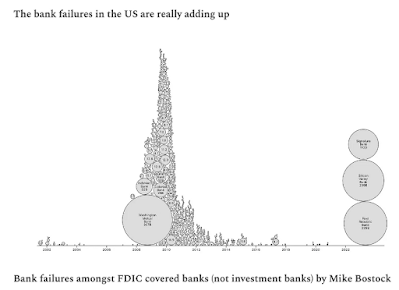*** denotes well-worth reading in full at source (even if excerpted extensively here)
Economic and Market Fare:
Grannis: Today the bond market is convinced that there will be no more Fed rate hikes. Yet the Fed insists that inflation has not fallen by enough, so that warrants continued monetary restraint; some governors even argue that further rate hikes might be necessary, even as evidence of economic weakness builds. Chalk this up to one more example of how the bond market is usually smarter than the Fed. Fed mistakes like this have been the proximate cause of every recession in my lifetime
Another financial war crime today, this time from The League of NonGentlemen, The Bank of England...another quarter point of penury for the real folk.
— Hugh Hendry Eclectica (@hendry_hugh) May 11, 2023
"We are really sensitive to the effect on people on lower incomes..."
Liar, liar pants-on-fire...
You're more interested in…
Charts:
1:
2/4
— Patrick Zweifel (@PkZweifel) May 9, 2023
Activity components by country show:
√ 30% of countries stay in expansion (>50) of which 9% are slowing down and 21% are accelerating, Thailand the most
√ 18% are recovering, including the US & Japan
√ 52% deteriorating, Italy the most pic.twitter.com/mXfoWaaES6
...Cleveland Fed 10-year inflation expectation metric has peaked and rolled over to the oh-so-scary level of 2.16% -- lower now than it was in Sept 2008 at the peak of the Great Financial Crisis. Meanwhile, Powell and crew remain scared of their own shadow. pic.twitter.com/A2y9YM1R4V
— David Rosenberg (@EconguyRosie) May 12, 2023
...Trend in Canadian consumer proposals is something...
— Ben Rabidoux (@BenRabidoux) May 12, 2023
FYI proposals are restructuring of unsecured debts including deficiencies on underwater auto loans/mortgages. pic.twitter.com/GnbPgxhPc8
...The Spring rally in freight was short-lived, as truckload spot rates head for the floor. The National Truckload Index (NTI) 2019 low was $1.46/mile.
— Craig Fuller 🛩🚛🚂⚓️ (@FreightAlley) May 10, 2023
Yesterday's NTI was $1.48.
In a typical May, you would see a Spring rally. This is not normal. 1/ pic.twitter.com/FFLOdqOF0a
The worst in the goods economy is yet to come. Wholesale sales tanked in March, and inventories were flat. This pushed the inventory-to-sales ratio up above 1.40 for the only the fifth time in 30 years. Inventory therefore production cuts are coming. Big layoffs, too. pic.twitter.com/3xXH13FuR5
— Jeffrey P. Snider (@JeffSnider_AIP) May 9, 2023
(not just) for the ESG crowd:
Sci Fare:
Other Fare:
Pics of the Week:













No comments:
Post a Comment